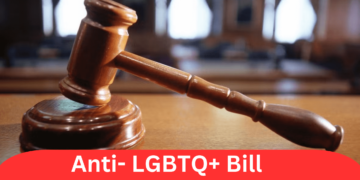Supporters of the contentious Anti-LGBTQ bill are organizing a demonstration against the Chief Justice on August 21, 2024, citing concerns over delays in advancing the bill to the President for assent. The initiative, led by Samuel Nartey George and other minority members, follows a visit to the National Chief Imam and the Acting President of the Osu Traditional Council, where they discussed their grievances.
This planned protest comes after the Supreme Court decided to defer its ruling on injunction applications filed by Dr. Amanda Odoi and journalist Richard Sky. These applications sought to halt the transmission of the bill to the President, claiming it violates constitutional protections under Articles 12(1) and (2), 15(1), 17(1) and (2), 18(2), and 21(1)(a)(b)(d)(e) of the 1992 Constitution.
Attorney General Godfred Yeboah Dame argued that the bill should not have been considered by Parliament, citing a breach of Article 108, which requires presidential involvement in bills that impose charges on public funds. He contended that the necessary conditions for the bill’s introduction were not met, rendering any legislative action on it invalid.
Conversely, Thaddeus Sory, representing the Speaker of Parliament, argued that denying the injunction would not harm the applicants. He asserted that the current application reiterated previously raised points and that stopping Parliament from proceeding would inappropriately encroach on legislative authority.
Samuel George assured that the protest would be peaceful, emphasizing that the demonstration aims to prompt the Chief Justice to expedite the judicial process. “Our issue is not with the President or the Speaker; it’s with the Chief Justice, who is delaying the process. We simply want her to fulfill her duty,” George stated.
The Supreme Court, led by the Chief Justice, has indicated that it will deliver its ruling on both the injunction and the substantive matter in an expedited trial. As the nation awaits this decision, the discourse around the bill’s legality and its potential impact on Ghanaian society continues to evolve.














